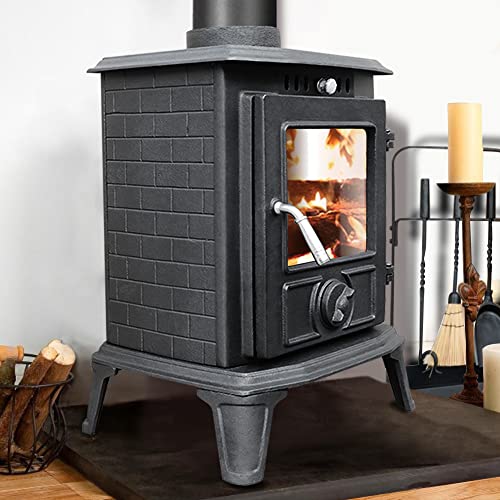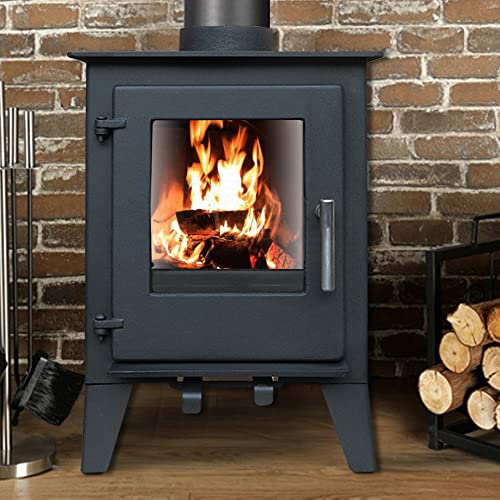 Choosing a Defra Exempt Wood Burner
Choosing a Defra Exempt Wood Burner
 Smoke Control Areas are the most commonly used classification for UK towns and cities. If you live in a Smoke Control Area and are looking to install a stove, you’ll require a Defra approved stove. You can identify them by their Defra approved logo.
Smoke Control Areas are the most commonly used classification for UK towns and cities. If you live in a Smoke Control Area and are looking to install a stove, you’ll require a Defra approved stove. You can identify them by their Defra approved logo.
The stoves which are exempt from Defra are designed to prevent the fire from smoldering. This reduces the amount of smoke. They also burn fuel better.
What is an Defra Exempt Stove?
A Defra Exempt Stove is a wood-burning heating appliance for domestic use that has passed the tests conducted by the Department for Environment, Food and Rural Affairs. The Defra Exempt Label is only applied to stoves which have been independently tested and that meet the strictest standards for emissions. Defra exempt stoves are able to be used in Smoke Control Areas.
You can’t burn wood without a DEFRA approved stove if you live in an area where smoking is controlled. Installing an non DEFRA approved stove in the smoke control zone is a violation of the Clean Air Act. You could be charged.
From the outside, there is very little distinction between a Defra approved stove and one that hasn’t been given this status. There are a few things stove makers can do to make their stoves exempt from DEFRA. The DEFRA approved stoves have burners that aren’t made to deprive flames of oxygen. This could cause them to smolder or produce excessive amounts smoke.
To prevent this, stove manufacturers will typically adjust the top air vent on a Defra approved stove. This prevents you from being able to shut the vent all the way down, as this will cut off the flow of air to the fire. The adjustment is typically an incredibly small screw located on the top of the stove, beneath the base of the stove or on the back of the stove.
Stoves that are Defra Exempt also tend to be multifuel stoves that can therefore be used to burn other kinds of fuels along with wood. This is a great choice if you live in an area that has been designated as a Smoke Control Area and you don’t want to be restricted to only using fuels that are approved. Some stoves that have Defra exemptions can also be fitted with five” liner for wood burning (if the manufacturer doesn’t insist on a bigger size). This is great news for those who plan on installing woodburning stoves in their homes but are worried about local regulations on smoke.
What are the advantages of a stove that is Defra certified?
In addition to ensuring compliance with local regulations and supplying an inviting fire for the winter months, Defra approved stoves can provide a variety of other advantages. For instance, they tend to have higher energy efficiency than non-Defra certified stoves and therefore reduce the amount of carbon produced when used. This can lead to significant savings on your heating costs. Defra-approved stoves are also easier to use and have more simple controls than non-approved ones.
When you are looking to purchase an electric or wood-burning stove, there are different aspects to take into consideration, including your needs for heating as well as aesthetic preferences and long-term goals. It is crucial to take these factors into consideration when choosing the right stove, and opting for a defra exempt stove is a great option for homeowners living in smoke controlled areas. These stoves are eco-friendly and have been thoroughly tested.
Apart from being environmentally friendly, Defra approved stoves are also designed to provide better combustion and flame spread. This ensures that the fuel burns evenly, producing an even and pleasant flame. They are also more durable than non DEFRA registered stoves approved stoves. This means they can stand up to higher temperatures and last for longer.
As an added benefit, most Defra approved stoves are compatible with a 5″ chimney liner, which is perfect for homes that are located in smoke-free areas. However it is important to be aware that if you are planning on using your stove with damp wood or any other wet fuel, it will produce nuisance smoke and can possibly result in a being prosecuted by the local authority.
To get Defra approval, stove manufacturers need to make adjustments to their appliances to limit the amount of air that can be removed during the combustion process. The air control at the top is typically modified to prevent the complete closing. Shutting off the air supply to a stove in excess could cause it to smolder instead of burning properly and, in turn, cause smoke that is unpleasant.
What is the difference between a Defra approved stove and a non-Defra-approved stove?
The most obvious difference is that a defra certified stove is able to legally burn wood in a Smoke Control Area, whereas a non-DEFRA approved high-quality stoves exempt stove will not be able to. Stoves that are approved by Defra have passed tests that show they can burn wood safely and efficiently in smoke-controlled areas, without producing excessive amounts of smoke. This means that even if you reside in a smoke control area you will be able to use your new stove without possibility of costly fines.
A stove that is approved by Defra is more energy efficient than other types that produce more heat while emitting less harmful carbon dioxide into the atmosphere. This makes them an excellent choice for homeowners who wish to save money on heating costs and are concerned about the environment.
Stoves that are Defra-approved will be advertised with the Defra Approved Logo which is used by stove manufacturers. You can also determine if a stove is Defra exempt by reading the specifications or looking on the website of the manufacturer for information about the stove.
There are many styles to choose from when choosing a Defra-approved stove. Some of these are more traditional and look stunning in an old fireplace chamber or inglenook. Other stoves are more contemporary and will fit in a modern home.
Also, make sure that the stove you choose is Defra exempt by ensuring it is listed on DEFRA’s list authorised appliances or by checking that it has the DEFRA exemption logo. Many manufacturers will market their stoves as being Defra exempt, even though they haven’t been tested to prove that they are. It is easier to sell a Clean Burn stove than to test it and incur the expense of becoming Defra-exempt.
The stove will be exempt from Defra regulations, which means that the wood used as fuel for it is sourced sustainably and properly dried prior to burning. This will mean that it is less likely to generate large quantities of smoke, which is better for the environment, and also helps keep the chimneys and flue systems in good condition for longer.
What is the Difference Between an Exempt Stove that is Defra-compliant and a Non-Defra Exempt Stove?
You’ll have to take into consideration a number of factors when choosing the right stove for your home. These include style, heat output, and the type of fuel. You may have noticed on our site that many multi-fuel and wood burning stoves are DEFRA exempted or DEFRA approved. This is jargon that for the average homeowner could appear to be a commercial term. However, it has important implications for those living in areas that are smoke-free.
In order to comply with the laws that ban the sale of wood in Smoke Control Areas, Defra exempt wood burners are designed with an internal mechanism that prevents you from closing the air supply valve completely. This is because if you reduce the flow of air to the fire too much, the wood will start to smolder and release excessive smoke, which would be in violation of the law. To prevent this from happening you should ensure that the wood in your stove is kiln dried before using it on the stove.
You can also use an exempt DEFRA wood burner in a Smoke Control Area, if you only use the approved fuels on the DEFRA website. These include gas, semi-anthracite and anthracite as well as steam coal with low volatile. If you install a stove that is not DEFRA-compliant in your home and use wet wood, or other fuels not on the DEFRA legislation stoves‘s list, you could be subject to penalties of up to PS1000.
Even if you don’t live in the Smoke Control Area a DEFRA exempted wood burner is still an excellent choice. They are more environmentally friendly and neighbor-friendly since they operate without producing nuisance smoke. They also have higher efficiency, and will keep your chimney system and flue clean for longer. It is important to know that all new stoves will need to meet the more stringent Ecodesign standards by 2022. These regulations establish minimum efficiency levels, NOX and OGV ceilings and emissions limits that are more than the ones in place today for DEFRA-exempt appliances.

